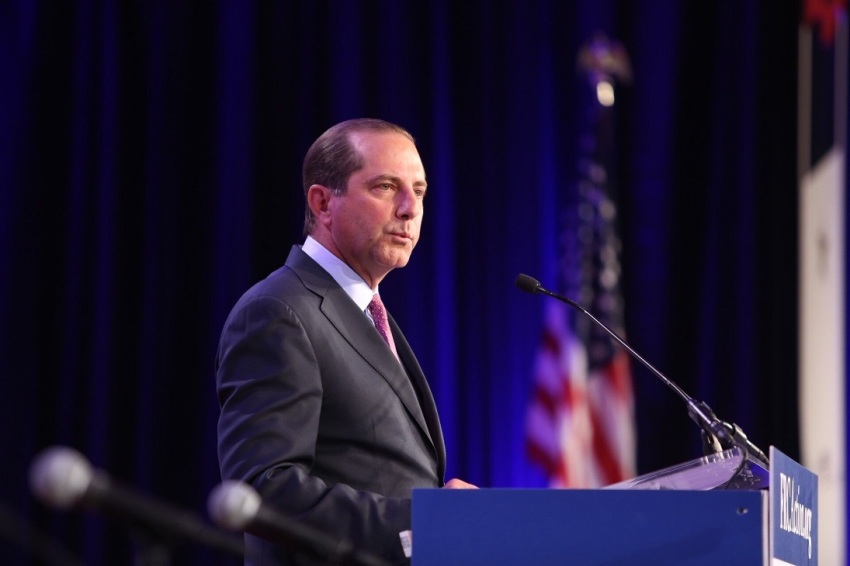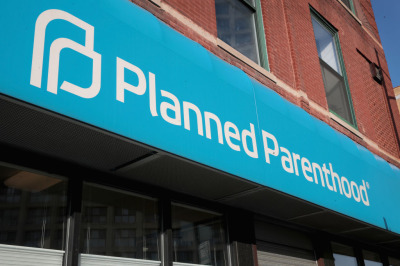Circuit court stops Trump admin. from enforcing Title X ban on funding clinics that promote abortion

An appeals court has upheld a judge’s ruling that blocked the Trump administration from enforcing a rule that halted Title X funding for medical professionals who refer women for an abortion.
In a 9-6 decision released last Thursday, the United States Court of Appeals for the Fourth Circuit upheld a district court decision issuing a permanent injunction against the Title X rule.
All dissenting judges were appointed by Republican presidents, including three by President Trump. All judges in the majority were appointed by Democrat presidents, save for Chief Judge Gregory, who was appointed by President George W. Bush.
Fourth Circuit Judge Stephanie Thacker, a nominee of President Obama, authored the majority opinion, arguing in part that the rule on Title X funds “failed to recognize and address the ethical concerns of literally every major medical organization in the country, and it arbitrarily estimated the cost of the physical separation of abortion services.”
“Several medical organizations submitted comments to HHS about the Final Rule, and all of them stated that the Final Rule would violate the established principles of medical ethics,” wrote Thacker.
“… even if HHS did not need to identify a particular medical organization that supported its view, it nonetheless cannot easily brush off the swell of evidence in the record before the agency that the medical community finds this Rule to be repugnant to the ethical rules governing the profession.”
The majority opinion also argued that the Title X rule violated the “Noninterference Mandate” of the Affordable Care Act, which said that HHS cannot advance a regulation that, among other things, “creates any unreasonable barriers to the ability of individuals to obtain appropriate medical care.”

“Prohibiting Title X health care providers from referring a woman for an abortion when she requests it, as the Final Rule does, quite clearly ‘interferes with communications’ about medical options between a patient and her provider,” continued Thacker.
Circuit Judge Julius N. Richardson, a nominee of President Trump, authored a dissent, arguing in part that the Title X rule “falls well within HHS’s established statutory authority, and the record shows that it was a product of reasoned decision making.”
“Whatever courts or commenters think about the wisdom of an agency’s regulations are of no moment,” wrote Richardson. “I conclude that the agency considered the issues and drew a rational line from the facts it found to the choices it made.”
“Today’s decision ignores text, abandons administrative-law principles, and forsakes the limited role of courts, particularly inferior ones, in our constitutional structure.”
The Title X family planning program gives approximately $286 million a year to health clinics that provide services, among them STD testing and contraceptives, to lower-income patients.
In February 2019, the Department of Health and Human Services issued a Final Rule regarding Title X funds, clarifying that funds could not go to programs that supported abortion, meaning they cannot provide abortion procedures or provide referrals for abortions.
The rule was based off of a similar measure created during the Reagan administration in 1988, which was upheld by the United States Supreme Court in 1991 but never implemented.
Planned Parenthood, the nation’s leading abortion provider, protested the rule change and exited the Title X family planning program rather than comply with the new regulations. Prior to the exit, Planned Parenthood received approximately $60 million in Title X funding.
In February, the U.S. Court of Appeals for the Ninth Circuit upheld the new rule, with a 7-4 decision whose majority opinion was authored by Circuit Judge Sandra Ikuta.
“In light of Supreme Court approval of the 1988 regulations and our broad deference to agencies’ interpretations of the statutes they are charged with implementing, plaintiffs’ legal challenges to the 2019 rule fail,” wrote Ikuta.
In her decision, Ikuta took issue with the term “gag rule,” which is commonly used to pejoratively describe the HHS rule, noting that the Trump administration rule does not fully censor abortion talk.
“… a counselor providing nondirective pregnancy counseling ‘may discuss abortion’ so long as ‘the counselor neither refers for, nor encourages, abortion’ … There is no ‘gag’ on abortion counseling,” added Ikuta.
In late March, the Fourth Circuit denied the Trump administration’s motion to stay a district court order blocking the new rule from taking effect in the state of Maryland.



























